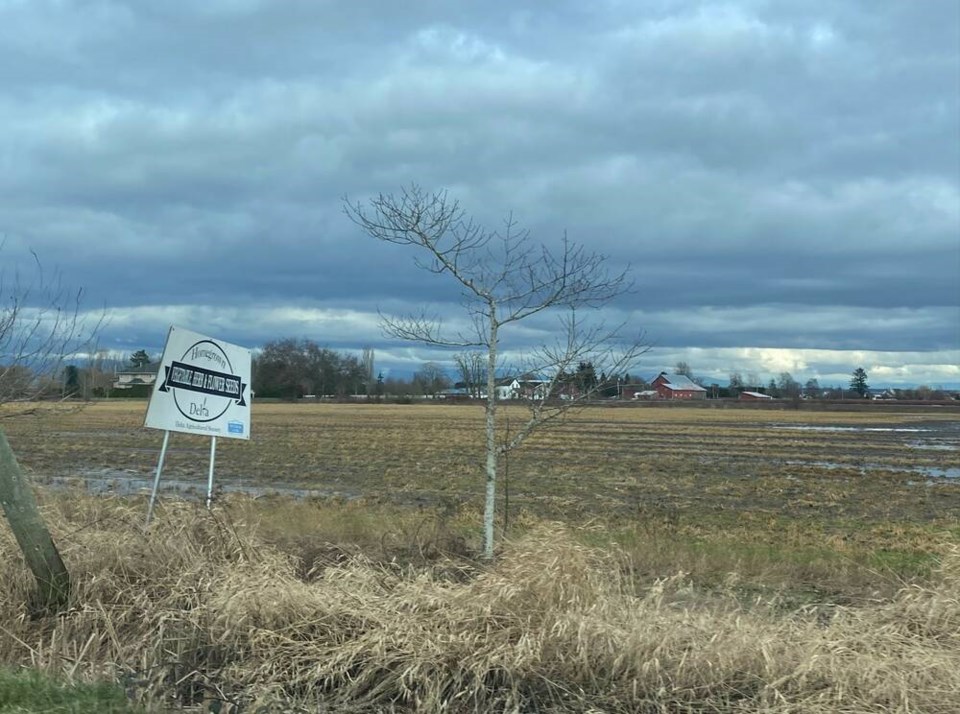A study will be undertaken to see where a second irrigation intake can be located to support Delta’s agricultural community.
The City of Delta last week announced it is receiving a $135,000 grant through the Food Security Emergency Planning and Preparedness Program for the analysis, funded by the BC Ministry of Agriculture and Food and delivered by the Investment Agriculture Foundation.
The $20 million fund was announced last September to help with planning and preparation for agricultural emergencies, while strengthening food security. The grant is separate from another recent funding announcement regarding the Agricultural Water Infrastructure Program by the province.
With the Fraser River freshet occurring earlier in the year, faster snowpack melt and rising sea levels pushing more saline water towards Delta’s only irrigation intake at Tasker Pump Station, the funding for the study will allow the city to look for an ideal location for a second irrigation intake from the Fraser River, the city announced in a news release.
The project is a great example of the proactive work that can be undertaken to ensure Delta keeps producing a sustainable supply of food, said Pam Alexis, Minister of Agriculture and Food.
Mayor George Harvie said that with climate change challenges such as the Fraser River freshet and rising sea levels impacting Delta’s irrigation systems, the project is crucial for water sustainability.
Delta will be preparing to retain a consultant through a request for proposals by this summer with the study anticipated to be complete in 2025. The initiative will explore options to increase the supply of irrigation water for local agriculture with new water infrastructure.
During a Delta council discussion last year on the city’s agricultural plan, Harvie conveyed concerns the document made no mention of how to help solve the “critical” situation of irrigation water.
Saying the farming community already has problems when it comes to salinity of the water from the Fraser River due a salt wedge migration, as well as subsequent reduced flows, Harvie asked staff to look into what is needed for a second intake of water further upriver.
Having another intake source of water is something that can no longer wait, he said.
The Delta Farmers’ Institute (DFI) had already conveyed concerns about the salt wedge, noting Delta’s irrigation water intakes in the lower Fraser River are affected by the migration of the salt wedge up the river when river flows are reduced.
Salt wedges occur in estuaries like the Fraser River delta where ocean water meets fresh water. The term salt wedge refers to the denser ocean salt water that pushes up the estuary. Some mixing with fresh river water occurs but, in general, the denser salt water tends to remain on the bottom of the river and fresh river water flows on top of the saline water.
“Concerns about changing salinity levels in the Fraser River are not limited to Delta alone. Many farms in Richmond also rely on the south arm of the Fraser River to provide irrigation water for agriculture. For some farmers it is their only source of water,” said DFI vice-president Clarence De Boer in a 2015 letter to the city requesting participation and funding for more study.
Currently, the salt wedge causes salination of the river and renders the water unusable for agricultural production at several times of the year and partial closures of water intakes for Delta’s agricultural irrigation ditch system are already in place along the river, a previous Delta report notes.




